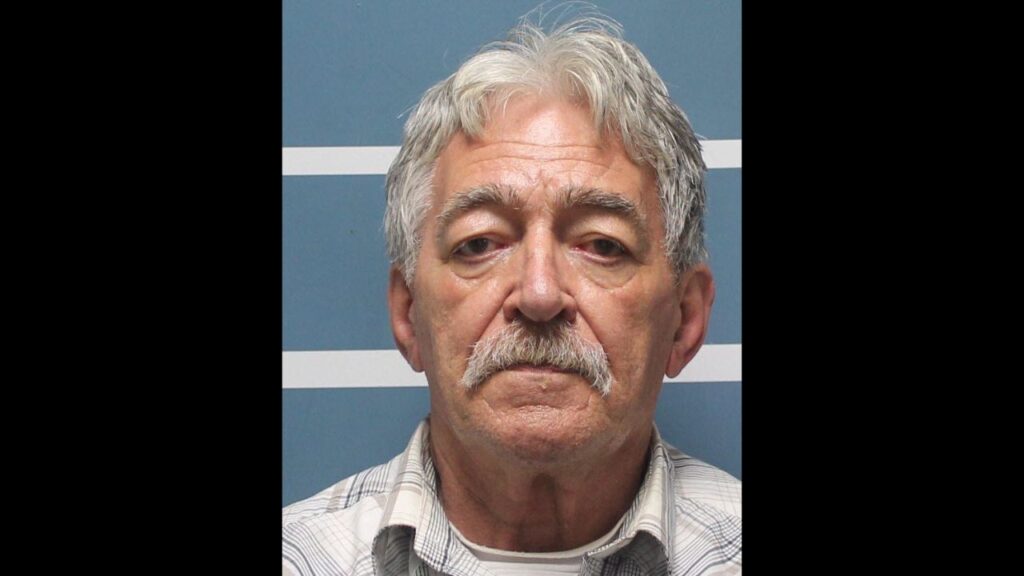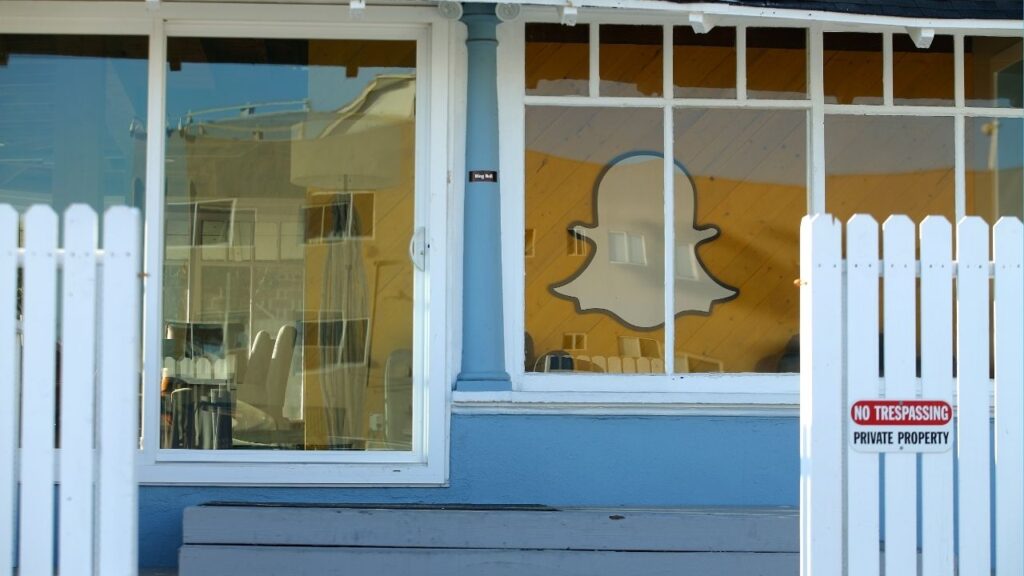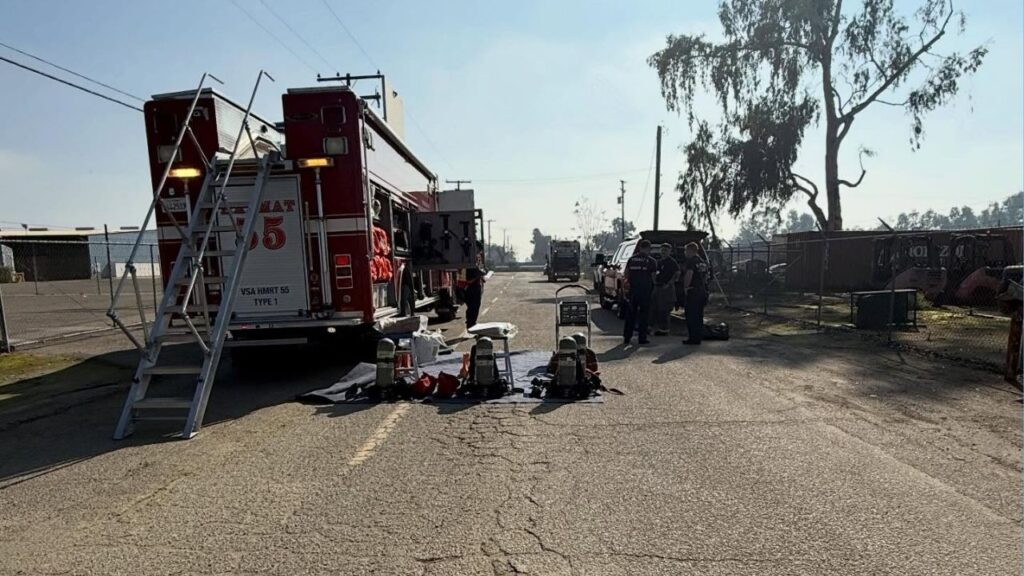Medical staff, patients and visitors in an underground parking garage, where patients were moved from rooms above, at Ramban Health Care Campus in Haifa, Israel, Sept. 23, 2024. Israeli airstrikes against Hezbollah in Lebanon killed more than 270 people and injured more than a thousand others on Monday, Lebanon’s health ministry said, in the deadliest day of Israeli attacks there since at least 2006. (Avishag Shaar-Yashuv/The New York Times)

- Thousands flee as Israeli airstrikes target Hezbollah, with strikes on 1,600 sites leading to mass civilian evacuations.
- Lebanese officials report over 550 deaths from the recent bombardment, marking the deadliest day since Lebanon's civil war.
- President Biden stresses the need for a diplomatic solution to the escalating conflict between Israel and Hezbollah.
Share
|
Getting your Trinity Audio player ready...
|
BEIRUT — Thousands fled their homes Tuesday as Israeli warplanes pounded more Hezbollah targets in Lebanon, in an offensive that has plunged the country into uncertainty over what Israel will do next and how the militant group might respond.
The strikes came a day after a vast wave of Israeli airstrikes, targeting about 1,600 sites in parts of the country where Hezbollah holds sway, killed hundreds of people and set off a mass flight of civilians from southern Lebanon to Beirut, the capital. The streets were clogged with traffic, and displaced people were sleeping in their cars.
Hezbollah Fired Around 300 Rockets on Tuesday
Hezbollah also fired about 300 rockets at northern Israel on Tuesday, according to the Israeli military, keeping up the steady assault it began Oct. 8, a day after its ally Hamas led the deadly attack on southern Israel from the Gaza Strip. Most of the rockets were intercepted by Israel’s missile defense system, but about six people sustained minor injuries, the military said.
Tuesday, the Israeli military said that a strike on a building south of Beirut, in an area known as the Dahiya, had killed a senior Hezbollah commander who was in charge of the group’s missile apparatus. Hezbollah later confirmed that the commander, Ibrahim Mohammad Qobeisi, had been killed.
“He was responsible for rocket fire on Haifa in recent days, including this morning,” an Israeli military spokesperson, Rear Adm. Daniel Hagari, told reporters.
With no clear prospect for a cease-fire in Gaza and the attacks in Lebanon now adding to the death and destruction in the region, Middle Eastern and other leaders who gathered in New York for the annual meeting of the United Nations General Assembly sharply castigated Israel for what they characterized as its heedless disregard for civilians in Gaza.
“This Israeli government has killed more children, more journalists, more aid workers, and more medical personnel than any other war in recent memory,” King Abdullah II of Jordan said in his address to the assembly. He expressed anger and frustration with Israel not only over the attacks in Gaza but also those on Palestinians in the Israeli-occupied West Bank.
President Joe Biden, in his own speech, reiterated his support for a two-state solution to the Israeli-Palestinian conflict and for a cease-fire in Gaza that would involve the release of the remaining hostages seized Oct. 7. “Now is the time for the parties to finalize its terms,” he said, although his aides, working with Qatar and Egypt, have been unable to broker an agreement after months of negotiations.
Related Story: Israeli Army Chief Says Military Is Preparing for Possible Ground Operation in ...
US Presses for Diplomatic Agreement
Biden said that the United States was also pressing for a diplomatic agreement to end the fighting between Hezbollah and Israel, which has displaced more than 160,000 people in Israel and Lebanon.
“Even as the situation has escalated, a diplomatic solution is still possible,” Biden said. “In fact, it remains the only path to lasting security.”
As Israeli troops continue to fight in Gaza, Israeli leaders have said they are shifting more military resources north toward Lebanon, with the goal of expelling Hezbollah forces from the border area and allowing displaced Israelis to return home.
The Israeli strikes in Lebanon have prompted many civilians to flee their homes. U.N. and Lebanese officials said Tuesday that 27,000 displaced people had settled in temporary shelters.
“Our house was leveled,” said Amal Mohamed Zayyat, who fled her village in Lebanon. “We did not bring any belongings, food or clothing. We had no choice. Had we not left, we would have died in our homes.”
U.N. officials reported that schools were closed across the country Tuesday and that families who were on the move had slept in cars on the side of the road.
“Yesterday, there were thousands of cars driving from the south to the north; all the roads were completely jammed,” Andrea Tenenti, a spokesperson for the United Nations Interim Force in Lebanon, said in a videotaped statement Tuesday. “You can see the destruction of buildings, of infrastructure, of roads, of farms, of land that has been cultivated for hundreds of years — completely destroyed.”
Related Story: Lebanon Sees Deadliest Day of Conflict Since 2006; Officials Say Israeli ...
Lebanon’s health minister, Firass Abiad, said Tuesday that 558 people had been killed in Monday’s bombardment alone, including at least 50 children. That would make it the country’s deadliest day since its 15-year civil war, which ended in 1990. Another 1,800 people were injured, Abiad said. The ministry does not differentiate between fighters and civilians.
With the war in Gaza nearing its one-year-mark and draining Israeli military resources, Hagari said that Israel was striking Hezbollah targets in Lebanon with “high intensity” because it sought to have “as short a campaign as possible.”
Danny Danon, the Israeli ambassador to the United Nations, told reporters in New York that Israel was not planning to send ground troops into Lebanon. “We are not eager to start any ground invasion anywhere,” he said.
Still, Danon said: “We are determined to protect the civilians of Israel. We prefer a diplomatic solution. If it’s not working, we are using other methods to show to the other side that we mean business.”
Last week, covert operations in Lebanon, widely attributed to Israel, blew up pagers and walkie-talkies belonging to Hezbollah members, and an Israeli airstrike killed a senior Hezbollah commander, Ibrahim Akil. On Monday, an Israeli strike targeted another senior Hezbollah leader, Ali Karaki, but the militants said he had survived.
Some experts on Hezbollah suggested Israel’s recent attacks had debilitated the group, leaving its membership in disarray.
“They have no options,” said Hilal Khashan, a professor of political science at the American University of Beirut and the author of a book on Hezbollah, adding, “Israel disabled Hezbollah.”
Others cautioned against writing the group off so quickly, citing its large weapons stockpiles and its history of adapting to confront Israel’s much more high-tech military.
–
This article originally appeared in The New York Times.
By Euan Ward, Ben Hubbard, Aaron Boxerman and Michael Levenson/Avishag Shaar-Yashuv
c. 2024 The New York Times Company
RELATED TOPICS:
Categories


















